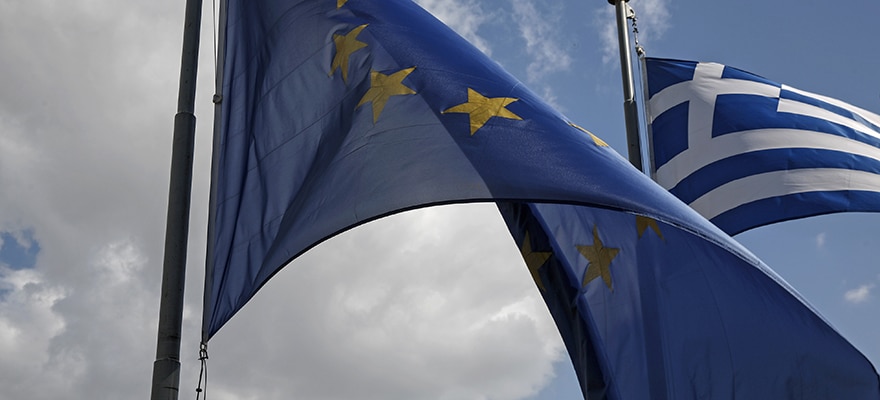The have yielded no results, as the leftist Greek government has decided to take the country to a default. The Prime Minister of Greece, Alexis Tsipras has inexplicably called for a referendum on whether the country should accept the latest rather generous proposal of its creditors to stay afloat.
The main issue with the political blackmail which Mr Tsipras is imposing on the population of Greece is that the referendum will be an irrelevant vote. In the current situation Mr Tsipras will be asking the Greek people in seven days on whether they want to prevent a black swan event for the country which is due to occur in three days.
Greek leftist government is asking for extension of EU loan program in order to be able to reject it in referendum. Logic used to be Greek.
— Carl Bildt (@carlbildt)
Mr Tsipras doesn’t seem to be realizing that the only reason why he still has a country to run is the liquidity support which the European Central Bank (ECB) has been providing to Greek banks. After his announcement of a referendum in a week’s time, the Emergency Liquidity Assistance (ELA) which the Frankfurt headquartered institution has been providing to basically now insolvent financial institutions in the country has not been boosted from Friday levels by the ECB on Sunday.
This will most likely lead to the first major important decision to be made by Greek finance minister Yanis Varoufakis – to implement capital controls.
Commenting on the announcement, the President of the ECB, Mario Draghi, said, “we continue to work closely with the Bank of Greece and we strongly endorse the commitment of Member States in pledging to take action to address the fragilities of euro area economies.” The Governor of the Bank of Greece, Yannis Stournaras, added, “The Bank of Greece, as a member of the Eurosystem, will take all measures necessary to ensure financial stability for Greek citizens in these difficult circumstances.”
If we’ve re-learnt one basic econ truth in the last decade, it’s that when deposits flee, ‘fixing’ the banking system costs 2 arms & 2 legs
— kit juckes (@kitjuckes)
Macro strategist at Societe Generale, Kit Juckes has shared on his Twitter page a short commenta addressing the challenges associated with a banking system in crisis stricken countries. Indeed, if the Greek banks do not manage to open for business on Monday, the voters will be forced to take to a vote with the financial system of the country on the brink.
The Greeks may not govern as well as the Germans, but they’re much more entertaining on Twitter.
— ian bremmer (@ianbremmer)
No signs of maturity were shown by Greek politicians, as the Eurogroup’s representatives have actually learned about the referendum proposal from Twitter. This is where Ian Bremmer is explaining the contrasts between German and Greek leaders.
The Greeks may not govern as well as the Germans, but they’re much more entertaining on Twitter.
— ian bremmer (@ianbremmer)
FX volatility to be rampant on Monday morning
Brokers across the industry are preparing to open their dealings on Monday morning with caution. Some industry insiders have shared with Finance Magnates reporters that they are already operating in emergency mode. A number of including leverage ratios and spreads on euro pairs are likely to be materially impacted.
Commenting on latest developments, FxPro’s Chief Economist Simon Smith said, “Naturally there is a lot of noise as to who is to blame for all of this. The fact is no-one is to blame but monetary union itself. The events of the past few months and especially twenty four hours have been the ultimate manifestation of the short-comings of the single currency.”
Even when we did have the debt-restructuring, it left Greece with a burden of debt and austerity (getting debt/GDP ration down to 120% of GDP) that was just unrealistic. I remember searching through a global database and was unable to find an example of a country that had managed to achieve this without a (further) default or devaluation.
Commenting on prospective currency volatility Mr Smith said, “what the recent events mean for the single currency itself is a lot harder to predict. Near-term, naturally volatility is assured, especially to the downside. Even if a way through is found, the relationship is so damaged that delaying the inevitable cannot be taken as a good thing by the single currency.”
“The bottom line is that the single currency is and always was a project where the politics came before the economics. That’s fine in the good times, but eventually the economics wins out and unfortunately for Greece this had now happened,” he concluded.
Whether the euro will open with a big gap only to fill it later as the weakest link of the Eurozone is now gone, or king dollar will get a safe haven bid across the board is not really something predictable.





Be First to Comment